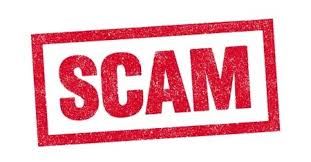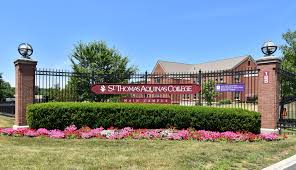Catholic University of America Launches Historic MBA Program with Faith-Based Business Philosophy
First MBA program at prestigious Washington, D.C. institution emphasizes “business as a force for good” while achieving elite AACSB accreditation
The Catholic University of America’s Busch School of Business made history in August 2025 by launching its first-ever Master of Business Administration program, marking a significant milestone for the prestigious Washington, D.C. institution that combines rigorous business education with Catholic social doctrine.
Key Program Highlights
- Accelerated Format: 9-month, 36-credit program designed for recent graduates with less than five years of professional experience
- Online Option: Fully online MBA program launches January 2026 for working professionals
- Elite Accreditation: AACSB accreditation achieved in April 2025, joining only 6% of business schools worldwide
- Faith Integration: Program uniquely integrates Catholic social teaching with modern business practices
- Global Experience: Required international capstone experience, with the first cohort traveling to Rome
Why This Matters
Addressing the Faith-Business Gap
The program represents a growing movement among Catholic institutions to provide MBA education rooted in Catholic ethics and social teaching. With over 500 schools offering MBA programs nationwide, CUA’s approach fills a unique niche for students seeking to integrate faith principles with business excellence.
“Pretty much anyone in the world can benefit from this education,” said Andrew Abela, founding dean of the Busch School. “Even if they’re already employed somewhere and want to advance their careers, and want to learn how to do it in a way that is consistent with being a faithful Christian.”
Elite Academic Standing
The program’s AACSB International accreditation, achieved after a rigorous multi-year review process, places CUA among the world’s most prestigious business schools. This accreditation ensures graduates receive globally recognized credentials while maintaining the program’s faith-based mission.
Market Demand and Success Metrics
The program received over 1,000 applications for its inaugural class, demonstrating significant market interest. The success builds on the Busch School’s undergraduate achievements, where 96% of graduates secure full-time employment within six months.
Industry Response
Catholic Education Leaders have praised the program as a model for integrating faith and business education. The approach emphasizes what Abela calls “business as a force for good” – a philosophy that views profit and purpose as complementary rather than competing objectives.
Business Professionals are responding positively to the program’s emphasis on virtue-based leadership. The curriculum includes courses on Catholic Social Teaching for Professionals and habits, virtues, and excellence, preparing graduates to lead with both competence and character.
Academic Community recognizes the program as part of a broader trend where Catholic colleges are expanding MBA offerings that integrate religious principles with business acumen.
Unique Program Features
Innovative Curriculum Structure
The program combines 24 credits of core business curriculum with 12 credits of specialization certificates in Strategic Management, Data Analytics, or Church Administration. This structure ensures graduates receive both broad business knowledge and specialized expertise.
Faith-Business Integration
Unlike traditional MBA programs, CUA’s curriculum integrates Catholic social doctrine throughout all courses, addressing concepts like human dignity, solidarity, and the common good within business contexts.
Practitioner Faculty
The program features a unique faculty composition split equally between academic scholars and former business executives, providing students with both theoretical knowledge and practical industry experience.
Summary
The Catholic University of America’s MBA program launch represents a significant development in faith-based business education, combining academic excellence with moral formation. The program’s rapid achievement of elite accreditation and strong market response suggest growing demand for business education that integrates profit with purpose.
As traditional MBA programs face increasing scrutiny over ethics and social responsibility, CUA’s approach offers a distinctive alternative that prepares leaders to navigate complex business challenges while maintaining moral integrity.
The program’s success will likely influence other Catholic institutions and potentially reshape conversations about the role of values in business education, positioning CUA as a leader in the emerging field of faith-integrated MBA programming.
Bottom Line: CUA’s MBA program fills a crucial gap in the market for values-based business education, offering students the opportunity to develop both professional competence and moral character in an increasingly complex business environment. The program’s combination of academic rigor and faith integration may well become a model for other institutions seeking to prepare ethical business leaders.





